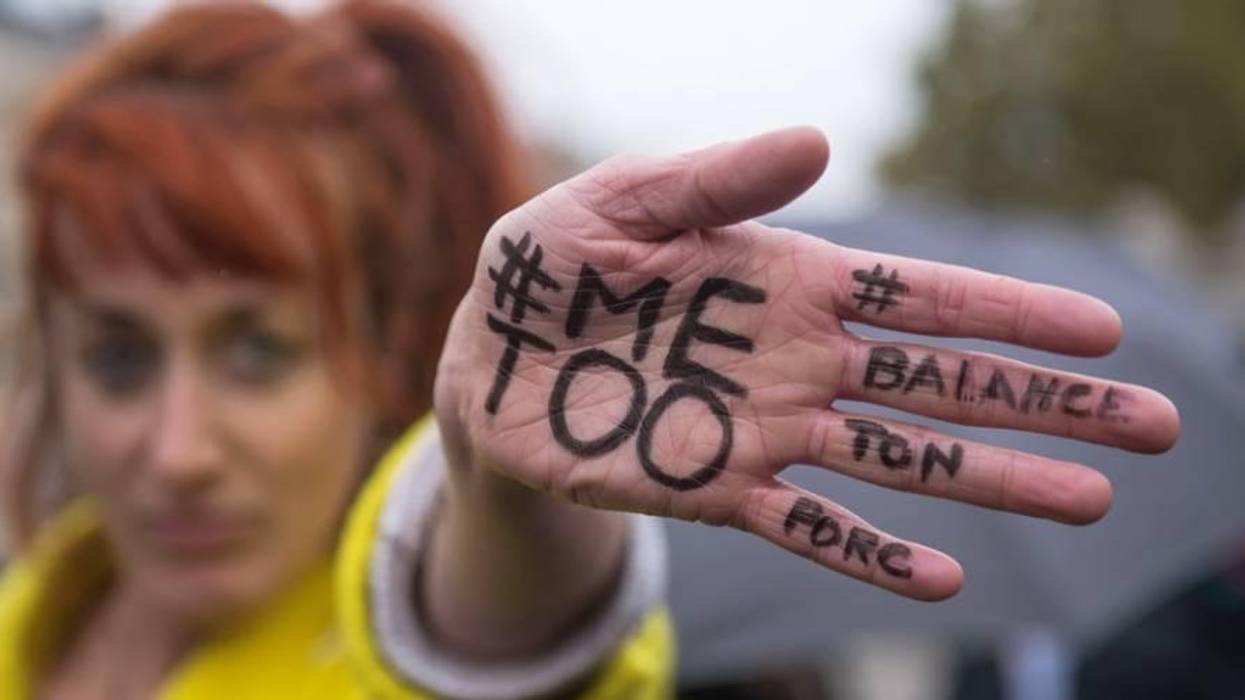"We are all Gisèle," protesters chanted in Paris, according to Le Monde. "Rapist we see you, victim we believe you."
The crime was discovered when her now ex-husband Dominique, a 71 year old who has plead guilty to drugging and raping his wife, was caught taking photos up the skirts of women in 2020. As part of that investigation, police uncovered a USB drive with a file labeled "abuse," which included more than 20,000 photos and videos of the attacks on his wife that were taken over a nine-year period. There was evidence that he had recruited more than 80 men to participate via an online forum. Police identified and charged 50 of the participants.
At the trial, which began September 2 and is expected to last four months, Pélicot described her harrowing experience. As The Guardian reported:
"My world fell apart. For me, everything was falling apart. Everything I had built up over 50 years."
She said she had barely recognized herself in the images, saying she was motionless. "I was sacrificed on the altar of vice," she said. "They regarded me like a rag doll, like a garbage bag."
"When you see that woman drugged, mistreated, a dead person on a bed—of course the body is not cold, it's warm, but it's as if I'm dead." She told the court rape was not a strong enough word, it was torture.
Saturday's protests were called by feminist groups in France.
"We thank her a thousand times for her enormous courage," Fatima Benomar of the feminist group "Coudes a Coudes" association told BFM TV.
34-year-old Justine Imbert, who attended a 200-strong march in Marseilles with her six-year-old daughter, told Le Monde, "It must have taken huge courage, but it was essential," for Pélicot to make the trial public.
"It allows people to see the faces of her husband and all the others, to see they are not outcasts but 'good fathers,'" Imbert said.
"I am here to support Gisele and all women as there are many Giseles, too many Giseles."
The men accused in the trial include a member of the local government, a civil servant, a journalist, a former police officer, a prison guard, and more than one nurse.
"It's shocking… because we see that the [men on trial] are a bit like Mr Everyman. It goes against the idea that there is only one type of rapist," 21-year-old photographer Pedro Campos said, according to The Guardian.
Martine Ragon, 74, told journalists she had come to the demonstration in Marseilles to "denounce rape culture."
"This well-publicized trial will allow people to speak out about it, to raise awareness," Ragon said.
Anna Toumazoff, who helped organize the protest in Paris that brought around 700 people to the Place de la Republique, also emphasized the need to talk about "rape culture."
"After seven years of MeToo, we know that there is not a special type of victim. We are also collectively realizing that there is no special type of a rapist," Toumazoff told The Associated Press.
Magali Lafourcade, a magistrate and secretary general of the National Consultative Commission on Human Rights, told AP that Pélicot's sharing of her story was important because 90% of women who are raped in France do not press charges and 80% of the cases that are brought forward are dropped.
Lou Salome Patouillard, a 41-year-old artist, who joined the demonstration in Marseilles, told Reuters, "I am here to support Gisele and all women as there are many Giseles, too many Giseles."
During the trial, Pélicot said that she began to have problems with her memory during the period when her husband was repeatedly drugging her. When she told her husband she was afraid she had Alzheimer's, he scheduled her a doctor's appointment. During the investigation, it was revealed that she had contracted multiple sexually transmitted diseases.
Through her lawyer, Stephane Babonneau, Pélicot explained her decision to make the trial public.
"It's a way of saying... shame must change sides," Babonneau said at the start of the trial, words that have been taken up as a rallying cry by France's feminist movement.
When supporters unfurled a banner from the Marseilles court building on Saturday, that is what it said: "Shame must change sides."




